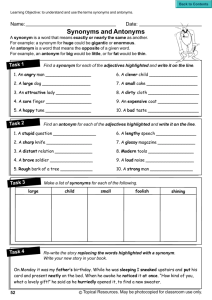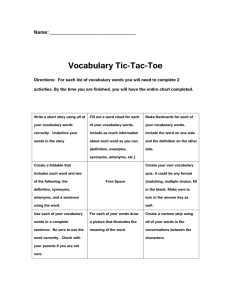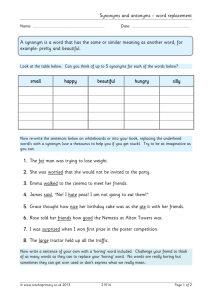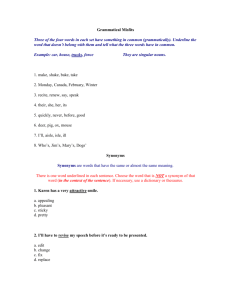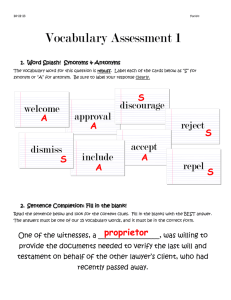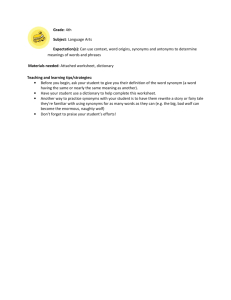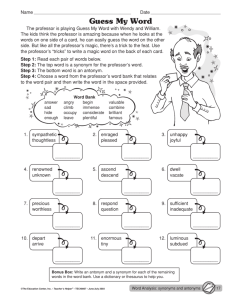File - NORTH STAR READING PARTNERS
advertisement
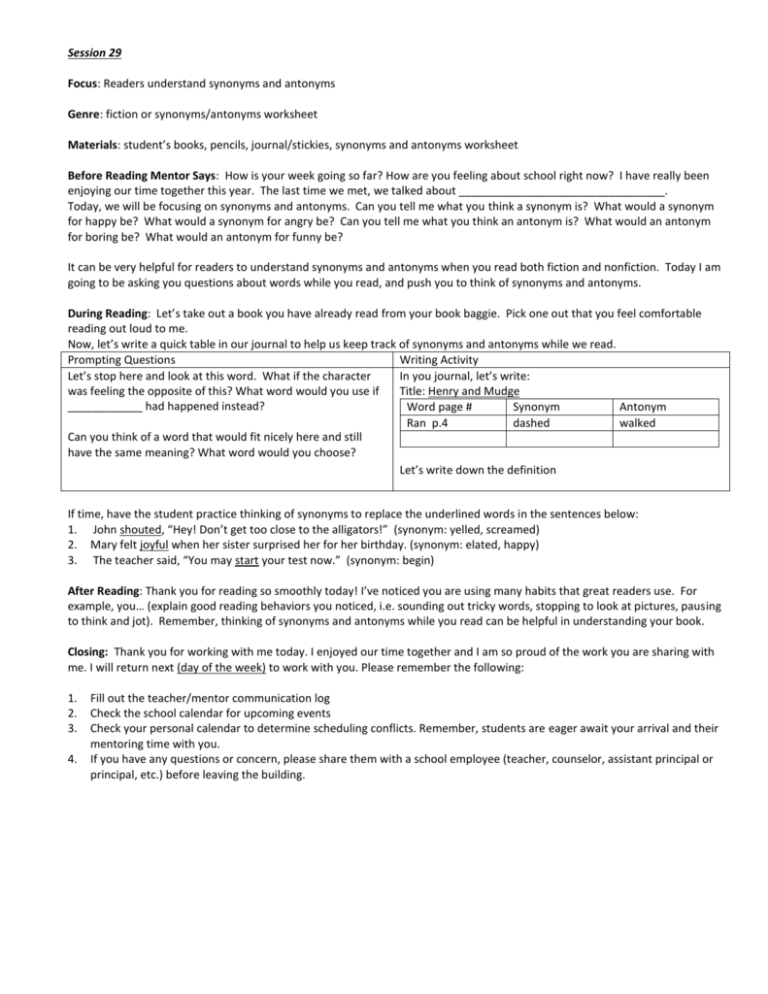
Session 29 Focus: Readers understand synonyms and antonyms Genre: fiction or synonyms/antonyms worksheet Materials: student’s books, pencils, journal/stickies, synonyms and antonyms worksheet Before Reading Mentor Says: How is your week going so far? How are you feeling about school right now? I have really been enjoying our time together this year. The last time we met, we talked about _________________________________. Today, we will be focusing on synonyms and antonyms. Can you tell me what you think a synonym is? What would a synonym for happy be? What would a synonym for angry be? Can you tell me what you think an antonym is? What would an antonym for boring be? What would an antonym for funny be? It can be very helpful for readers to understand synonyms and antonyms when you read both fiction and nonfiction. Today I am going to be asking you questions about words while you read, and push you to think of synonyms and antonyms. During Reading: Let’s take out a book you have already read from your book baggie. Pick one out that you feel comfortable reading out loud to me. Now, let’s write a quick table in our journal to help us keep track of synonyms and antonyms while we read. Prompting Questions Writing Activity Let’s stop here and look at this word. What if the character In you journal, let’s write: was feeling the opposite of this? What word would you use if Title: Henry and Mudge ____________ had happened instead? Word page # Synonym Antonym Ran p.4 dashed walked Can you think of a word that would fit nicely here and still have the same meaning? What word would you choose? Let’s write down the definition If time, have the student practice thinking of synonyms to replace the underlined words in the sentences below: 1. John shouted, “Hey! Don’t get too close to the alligators!” (synonym: yelled, screamed) 2. Mary felt joyful when her sister surprised her for her birthday. (synonym: elated, happy) 3. The teacher said, “You may start your test now.” (synonym: begin) After Reading: Thank you for reading so smoothly today! I’ve noticed you are using many habits that great readers use. For example, you… (explain good reading behaviors you noticed, i.e. sounding out tricky words, stopping to look at pictures, pausing to think and jot). Remember, thinking of synonyms and antonyms while you read can be helpful in understanding your book. Closing: Thank you for working with me today. I enjoyed our time together and I am so proud of the work you are sharing with me. I will return next (day of the week) to work with you. Please remember the following: 1. 2. 3. 4. Fill out the teacher/mentor communication log Check the school calendar for upcoming events Check your personal calendar to determine scheduling conflicts. Remember, students are eager await your arrival and their mentoring time with you. If you have any questions or concern, please share them with a school employee (teacher, counselor, assistant principal or principal, etc.) before leaving the building.

